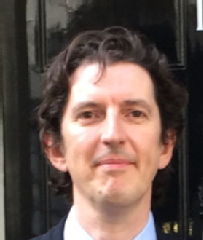News
Fourth volume of Michel Foucault’s History of Sexuality published, posthumously - expert comment from Prof Stuart Elden
 Les aveux de la chair [Confessions of the Flesh], the fourth volume of French philosopher Michel Foucault’s History of Sexuality is published today (Feb 8, 2018), despite Foucault’s expressed wish that there should be ‘no posthumous publications’.
Les aveux de la chair [Confessions of the Flesh], the fourth volume of French philosopher Michel Foucault’s History of Sexuality is published today (Feb 8, 2018), despite Foucault’s expressed wish that there should be ‘no posthumous publications’.
Stuart Elden, Professor of Political Theory and Geography, in Warwick University’s Politics and International Studies Department and Monash Warwick Professor in the Faculty of Arts, Monash University, is one of the leading experts in Foucault’s work.
He comments on the significance of today’s publication and on Foucault’s academic legacy:
“While Michael Foucault worked across many conventional academic disciplines, he was essentially a philosopher who explored questions through historical investigations. Most of his books are titled the history of something – madness, sexuality – or the birth of something – the clinic, the prison. He sometimes described his work as archaeologies – digging down to discover previously unseen layers, or genealogies – tracing roots and lineages of ideas and practices. But this work was always to try to explore larger questions – why do we think the way that we do, or know what we do; how does power work over us; what does it mean to be a subject?
“In many ways Les aveux de la chair is the key to the whole History of Sexuality series. In 1976, with the publication of the first volume, Foucault outlined a thematic treatment of six volumes. The second book, on that plan, was to be on the medieval church and especially the question of confession of sins. Its initial title was La chair et le corps [The Flesh and the Body]. Foucault wrote much of a volume under this title. But he came to realise that crucial issues in the Christian tradition could be traced much further back. So through the late 1970s and early 1980s, which we can see in his lectures and other sources, he explored older and older historical material.
“This book is the result of this work. But Foucault felt that he needed to precede this book with a treatment of pagan antiquity, as he came to realise that many of the issues in the early Christian tradition had links to Greek and Roman texts and practices. So he put this book aside, wrote the books which were published as Volumes II and III, and the intended book on Christianity became Volume IV.
“The book is in three parts. The first discusses how the ancient notion of aphrodisia – a notion we might understand as pleasure, became replaced with the Christian notion of the flesh. That, in turn, precedes our modern understanding of sexuality. The second and third parts of the book discuss being a virgin and being married. These are the two key subjects that the Church fathers are concerned with – the monk and the married man.
“The book is much closer in style to Volumes II and III than some of Foucault’s other works. It is written in an austere style of textual analysis, without the kind of rhetorical flourishes that characterise some of his other work.”
Reflecting on Foucault’s continued relevance, Professor Elden added: “Foucault only rarely wrote about contemporary events. In his lectures and interviews, and especially in his political activism around prisons and health in the early 1970s, he sometimes connected his work to the current moment. But most often he was concerned with the historical analysis of issues. He spoke of his work as a ‘history of the present’, an examination of how we got to where we are, how what is currently taken for granted was made possible. The issues he was concerned with – madness and mental illness, medicine and health, punishment, sexuality and so on – remain pressing issues today and Foucault’s investigation of these issues, and perhaps especially the questions he asked about them, mean he continues to be a regular reference.
“With the publication of his lecture courses, and now this entire book, we are continually finding new work to explore and think with him.”
8 February 2018
- Professor Elden is the author of Foucault’s Last Decade, a study of Foucault’s History of Sexuality which draws on archival material and interviews: http://politybooks.com/bookdetail/?isbn=9780745683911
- He is also the author of a book on the immediately preceding period which looks at Foucault’s political activism and academic work on power – http://politybooks.com/bookdetail/?isbn=9781509507252
- He is currently writing a book entitled The Early Foucault
